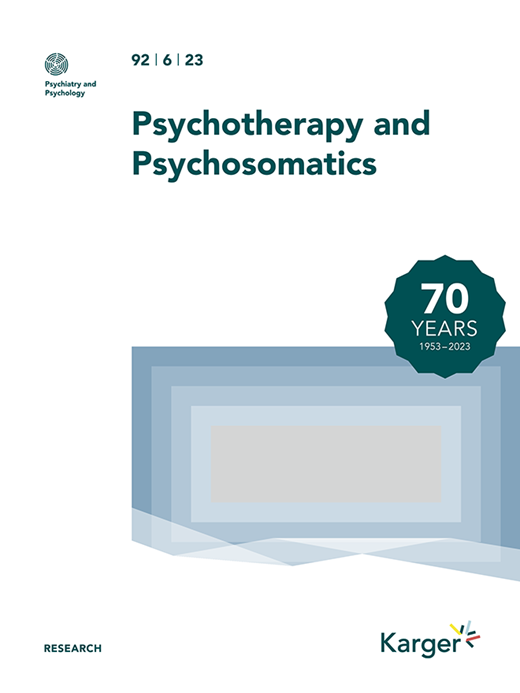评估成人童年逆境暴露:一项有效的自我报告童年逆境问卷的系统回顾。
IF 17.4
1区 医学
Q1 PSYCHIATRY
引用次数: 0
摘要
有不良经历(ace)的儿童在成年后更有可能经历心理健康问题。然而,ACE评估是高度异质性的,阻碍了广泛的筛查和创伤知情护理的提供。我们的目标是系统地识别和批判性地评估所有经过验证的、自我报告的ACE问卷,与有生活经验(PWLE)的人一起工作。该综述遵循PRISMA指南,系统地检索数据库中有效的自我报告测量方法,由成人完成,评估至少两个ace。如果文章不是用英文写的,不是原创文章,评估儿童健康状况不佳或成年后发生的不良经历,和/或只评估了一个ACE,则排除。使用Cohen的循证评估标准、COSMIN检查表和与PWLE共同设计的内容效度表来评估心理测量特性。我们确定了112项符合条件的研究,涵盖31份ACE问卷。科恩的标准将9份问卷划分为“完善”,2份为“接近完善”。没有问卷在COSMIN的所有测量属性中被评为“足够”质量。ACE研究问卷、童年经历调查(CES)和ACE国际问卷被评为充分的属性数量最多。儿童创伤问卷-短表格(CTQ-SF)是最常被评估的,但在所有测量属性上都被评为“不足”。PWLE对CES的内容效度得分最高。因此,没有一份ACE问卷获得良好的心理测量评分,最广泛使用的问卷(CTQ-SF)表现不佳,这对选择合适的工具有影响。随着对创伤知情卫生保健的日益重视,迫切需要与PWLE共同开发ACE问卷,以平衡内容效度和可用性。本文章由计算机程序翻译,如有差异,请以英文原文为准。
Assessing exposure to childhood adversity in adults: A systematic review of validated self-report childhood adversity questionnaires.
Children exposed to adverse experiences (ACEs) are more likely to experience mental health problems in adulthood. However, ACE assessment is highly heterogeneous, hampering widespread screening and trauma-informed care provision. We aimed to systematically identify and critically evaluate all validated, self-report ACE questionnaires, working with people with lived experience (PWLE). The review followed PRISMA guidelines to systematically search databases for validated self-report measures, completed by adults, assessing at least two ACEs. Articles were excluded if they were not written in English, were not original articles, assessed poor childhood health or adverse experiences happening in adulthood, and/or only assessed one ACE. Psychometric properties were evaluated using Cohen's criteria for evidence-based assessments, the COSMIN checklist, and a content validity form co-designed with PWLE. We identified 112 eligible studies covering 31 ACE questionnaires. Cohen's criteria classified 9 questionnaires as "well-established" and 2 as "approaching well-established". No questionnaire was rated as "sufficient" quality across all the COSMIN measurement properties. The ACE Study-questionnaire, Childhood Experiences Survey (CES) and the ACE-International Questionnaire had the highest number of properties rated as sufficient. The Childhood Trauma Questionnaire-Short Form (CTQ-SF) was most frequently evaluated but received "insufficient" ratings across all measurement properties. PWLE scored content validity highest for the CES. Consequently, no ACE questionnaires received good psychometric ratings, with the most widely used questionnaire (CTQ-SF) not performing well, which has implications for selecting an appropriate instrument. With increasing emphasis on trauma-informed health care, there is an urgent need to co-develop ACE questionnaires with PWLE to balance content validity with usability.
求助全文
通过发布文献求助,成功后即可免费获取论文全文。
去求助
来源期刊

Psychotherapy and Psychosomatics
医学-精神病学
CiteScore
29.40
自引率
6.10%
发文量
46
期刊介绍:
Psychotherapy and Psychosomatics is a reputable journal that has been published since 1953. Over the years, it has gained recognition for its independence, originality, and methodological rigor. The journal has been at the forefront of research in psychosomatic medicine, psychotherapy research, and psychopharmacology, and has contributed to the development of new lines of research in these areas. It is now ranked among the world's most cited journals in the field.
As the official journal of the International College of Psychosomatic Medicine and the World Federation for Psychotherapy, Psychotherapy and Psychosomatics serves as a platform for discussing current and controversial issues and showcasing innovations in assessment and treatment. It offers a unique forum for cutting-edge thinking at the intersection of medical and behavioral sciences, catering to both practicing clinicians and researchers.
The journal is indexed in various databases and platforms such as PubMed, MEDLINE, Web of Science, Science Citation Index, Social Sciences Citation Index, Science Citation Index Expanded, BIOSIS Previews, Google Scholar, Academic Search, and Health Research Premium Collection, among others.
 求助内容:
求助内容: 应助结果提醒方式:
应助结果提醒方式:


